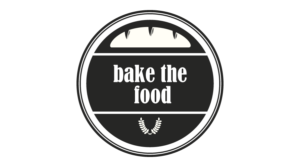Sanitizing one’s surrounding in the current world has become much more important and especially in the food stores. With heightened awareness on the part of consumers seeking healthier foods to include in their diets, the general cleanliness of grocery stores and supermarkets remains a significant factor. Although it is always important to clean both the self and surroundings, some sections within food stores deserve more attention and should be subjected to thorough washing and disinfection processes test individuals both customers and employees be at risk.
Produce and Bulk Food Sections:
The produce and bulk foods sections of a store are the most sensitive as customer touch is likely to undermine the safety standards of most of the foods. Regular cleaning and sanitizing of shop shelves are crucial to prevent the buildup of dust, debris, and potential contaminants that could compromise the quality and safety of displayed food items. Bulk food display bins, weighing scales, tongs, and scoops involved in handling and dispensing cold items require special attention in sanitization processes. Proper cleaning of the refrigerated display cases, misting systems, and floors or any area where water is likely to accumulate also help in minimizing the proliferation of hostile bacteria.
High-Touch Surfaces in the Checkout Area:
Checkout area is one of the most congested and the most impassive contact areas in any supermarket selling food products. Hence why it retains extra measure of cleansing, to reduce chances of spreading germs and bacteria. Areas that cannot be cleaned using normal water and cleaning cloth are conveyor belts, payment equipment such as terminals, cards readers, and touch panels. These are surfaces that are in close touch with many clients and their purchases during the day, thereby posing potential risks of contamination.
Restrooms and Employee Break Areas:
Even though they may not be involved in food handling, the rest rooms and employee break areas are also important in store cleanliness. These areas are highly susceptible to bacterial and viral growth if not cleaned regularly and thoroughly. In restrooms, much more attention should be paid to the high contact areas like the door knobs, the water taps, the flush buttons on the toilet, and the dispenser buttons. The toilet areas, sink and floors should be cleaned and disinfected frequently especially during rush hours. While in the employee break areas, target tabletops, chairs, microwave ovens and refrigerators and any utensils that may be commonly used.
Shopping Carts and Baskets:
Trolleys and baskets are other items that are rarely considered for cleaning though they are among the most touched objects in a food store. These items are handled by several customers and come into contact with various surfaces within the store, making it easy for them to transfer pathogenic microorganisms. Sanitizing the cart and basket is one of the most important steps that must not be overlooked in the process. This can involve employing EPA-registered disinfectants as well as providing correct contact time to eradicate germs.
Deli and Prepared Food Counters:
Deli and other prepared food areas which are deemed very sensitive and sensitive and need to be cleaned use very sensitive and rigorous cleaning methods. Specific areas or surfaces that would require closer monitoring include areas where food preparations are done such as cutting boards, slicer, food scales and display cases. Storing cutters boards and utensils according to colors can lessen the chances of cross-contamination between different meats or other foods that are used in preparation. Effective cleaning and sanitizing practices in storage areas, including cold room shelving, are crucial for maintaining food safety standards and preventing cross-contamination
Therefore, the practice of good hygiene and cleanliness in food stores is very important to enhance customers’ trust and protect them from any health issues. When the management directs more cleaning attention to touchpoints like checkouts, produce aisles, delicatessen surfaces, washrooms, employee spaces, and trolleys, disease transmission and food poisoning could be minimized.

